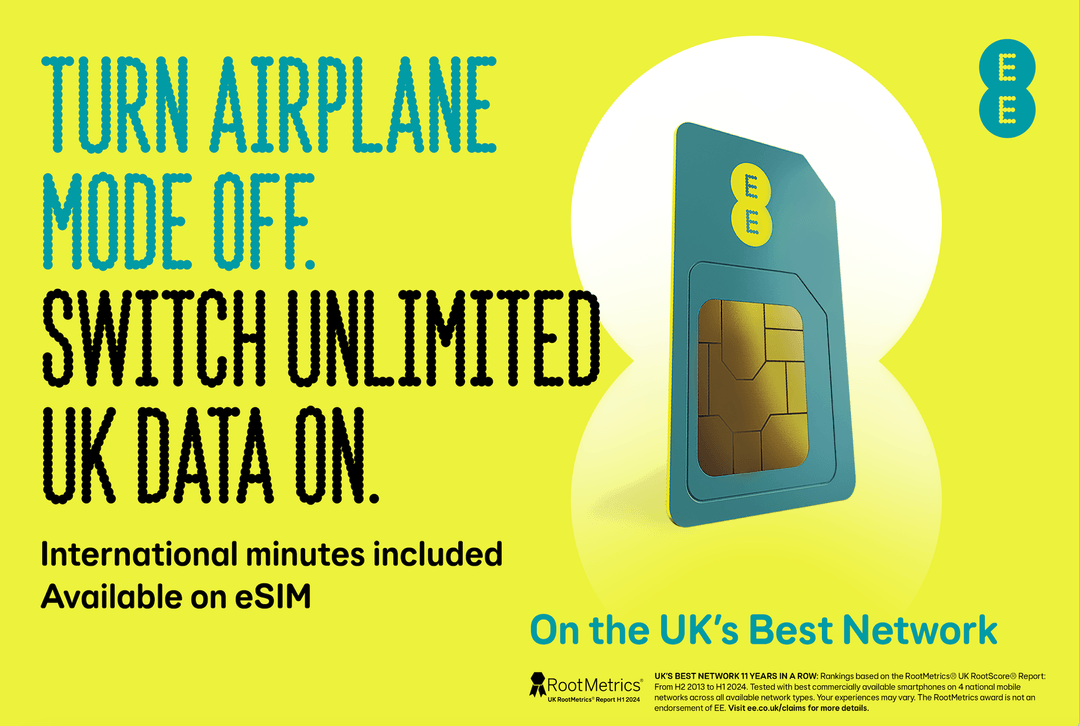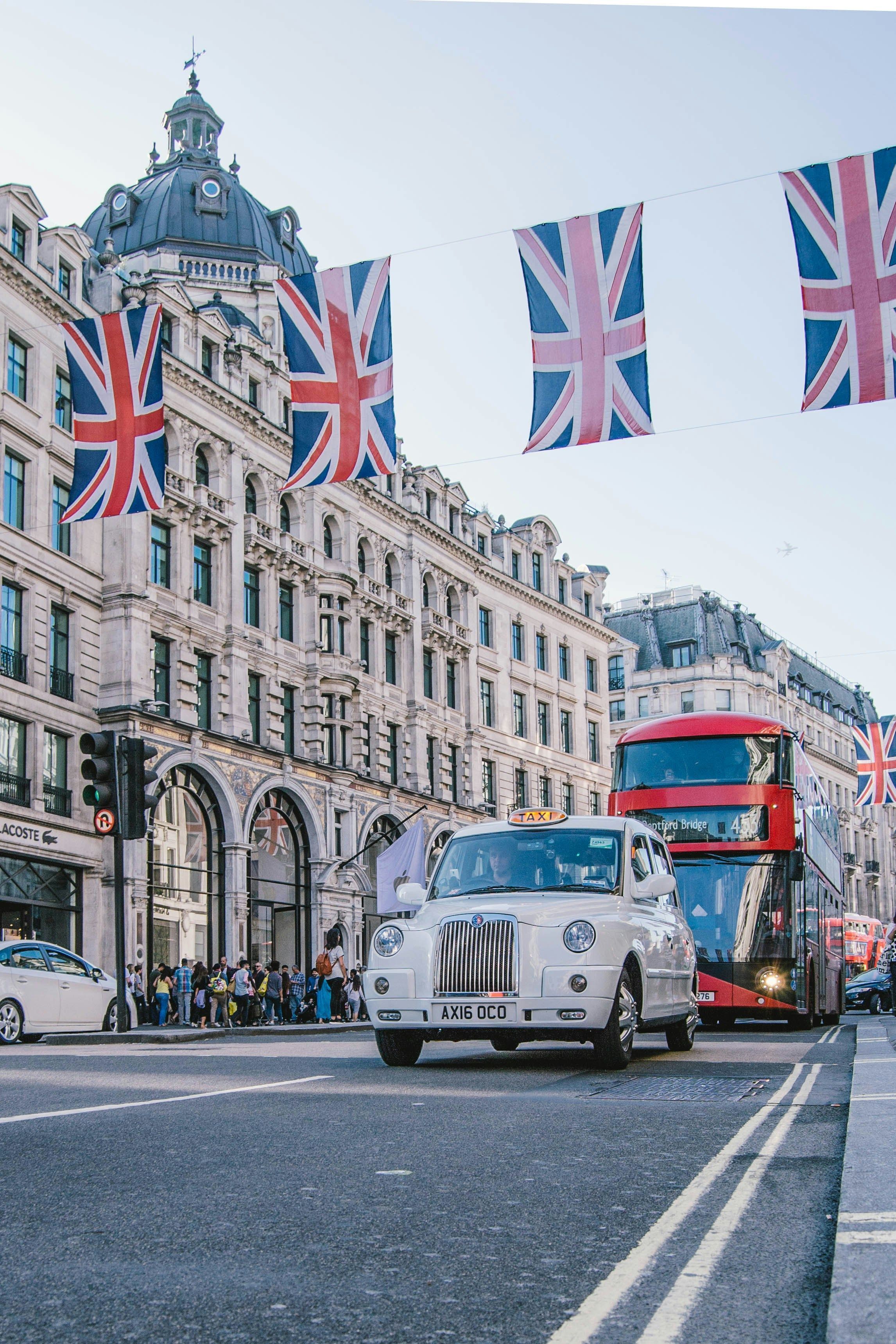 Top 4 EE Pay-As-You-Go eSIM Plans for the UK
Top 4 EE Pay-As-You-Go eSIM Plans for the UKThe UK's fastest mobile network has a Pay As You Go eSIM available exclusively from Sim Local. Get your great value EE eSIM today.
Read More
So, you’re thinking about moving to the UK?
Whether it’s London’s nonstop buzz, Edinburgh’s historic charm, or Brighton’s chill seaside, moving can be super exciting and a little overwhelming. If you’re planning to study in the UK, we’ve got a separate guide for that as well.
From visas to accommodation, eSIMs to transport, we’ve got everything you need to make your move easy.
✅ Visa & Documents: Keep your visa, BRP (if applicable), and confirmations in both digital and printed form.
✅ Accommodation: Confirm your UK address.
✅ Phone: Get a UK eSIM for instant activation and a real number.
✅ Job: Have a role lined up or a clear job-hunt plan with CV ready.
✅ Bank Account: Research digital banks like Monzo or Revolut for easy setup.
✅ National Insurance: Know the application process and required documents.
✅ Health Coverage: Pay the NHS or arrange private insurance.
✅ Backup Documents: Scan and keep digital copies of your passport, visa, certificates, proof of funds, and rental/job letters.
✅ Packing: Bring warm clothes, waterproof jackets, adapters, and any prescriptions with notes.
Whether you need a visa to come to the UK depends on your nationality. For example, if you’re Irish, you don’t need one. The type of visa you’ll need really comes down to why you’re moving:
Top Tip: The UK government’s Check if you need a visa tool is your best friend here. Use it.
Finding a place to live in the UK can be tough. The housing market moves fast and prices vary wildly by city. Here’s what to know before you start your search.
Smaller towns and cities like Leeds, Cardiff, Glasgow, or Belfast can offer better affordability, so don’t write them off.
Before you sign a lease, make sure you understand the basics. Here’s what every renter in the UK should know.
Flat shares are super common, especially in big cities.
Unless you have a lot of savings or you're moving to retire, you’ll probably need to find a job. Here’s what you should know to get started.
The UK job market can be competitive, but there are lots of opportunities if you’re in the right field. Areas like healthcare, tech, education, and finance are always on the lookout for people. The visa process for those jobs can sometimes be a bit easier.
Pro tip: If your role is on the shortage occupation list, your employer might even help sponsor your visa.
First things first, in the UK it’s called a CV, not a résumé. Keep it short, two pages max and focus on your achievements. Skip the photo unless you are in acting or modelling, and aim for a tone that is professional but friendly.
Include:
Let’s talk about your phone. There’s nothing worse than landing at Heathrow airport, opening Google Maps, and seeing that your roaming charges could pay for a whole holiday.
The easiest way to get connected is with a UK SIM or eSIM. There are plenty of providers, but the big names are EE, Vodafone, Lycamobile, O2, and Three. eSIMs are a game-changer because you can download them in three minutes before you even get on the plane. You even get a real UK phone number, not a virtual one.
Block Field
The NHS is the UK’s public healthcare system. People love it, even if it can be a bit slow at times. Here’s what you need to know.
The National Health Service (NHS) offers healthcare that’s mostly free at the point of use for residents. But (and this is a big but) most visa holders have to pay the Immigration Health Surcharge (IHS) as part of their visa application. It’s about £800 per year for adults, and it gives you access to NHS services while you’re living in the UK.
Once you have a UK address, sign up with a local GP (General Practitioner). They’re the first people to see for non-urgent health issues. Registration and appointments are free, but you might have to wait a little for a slot.
To register, you’ll need:
London might be known for sky-high rent, but the UK overall can be hard on your finances. Here’s what to expect:
Always check what’s included. Some rentals cover utilities, some don’t. Council tax adds a sneaky extra £80–£200 a month, depending on where you live.
 Top 4 EE Pay-As-You-Go eSIM Plans for the UK
Top 4 EE Pay-As-You-Go eSIM Plans for the UKThe UK's fastest mobile network has a Pay As You Go eSIM available exclusively from Sim Local. Get your great value EE eSIM today.
Read More How to Install a Sim Local eSIM With a QR Code on iPhone
How to Install a Sim Local eSIM With a QR Code on iPhoneLearn how to quickly install a Sim Local eSIM on your iPhone using a QR code. Follow our step-by-step guide for easy activation & instant connectivity.
Read More How to Manually Install a Sim Local eSIM on Your iPhone
How to Manually Install a Sim Local eSIM on Your iPhoneLearn how to manually install a Sim Local eSIM on your iPhone with this easy step-by-step guide. Stay connected effortlessly with a Sim Local eSIM while travelling.
Read MoreStay connected with a UK eSIM plan
© 2026 Sim Local (IRELAND) Ltd. All Rights Reserved.